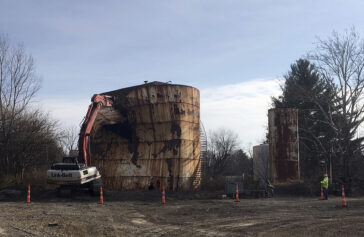Aug. 31, 2018
Best of the States
Tibbetts murder suspect lived, worked on land linked to GOP fundraiser
Within hours of the news that the man charged with killing Iowa college student Mollie Tibbetts was a Mexican citizen believed to be in the United States illegally, Republican leaders from President Donald Trump to Iowa Gov. Kim Reynolds injected the case into the political debate, blaming lax immigration policies for allowing the man into the community.
Amid such comments, Iowa City correspondent Ryan J. Foley got a tip from two longtime Republican Party sources: The suspect lived on land partly owned by Nicole Schlinger, one of the party’s most prolific national fundraisers, the sources said.
Foley was determined to discover whether that was true. He obtained property records showing Schlinger and her husband owned the farm trailer where Rivera had lived, and her husband was president of the farm. Foley then got confirmation from Schlinger, who had avoided his questions for days.
Further, Schlinger’s fundraising client list included anti-illegal-immigration hard-liners, including Reynolds, Texas Sen. Ted Cruz and even the Stop Sanctuary Cities PAC.
The story was used extensively by Iowa newspapers and was a big online hit, with hundreds of postings and 40,000 Facebook interactions.
For scooping local and national competitors on a high-interest topic even as he reported on spot developments, Ryan Foley wins this week’s Best of the States award.





